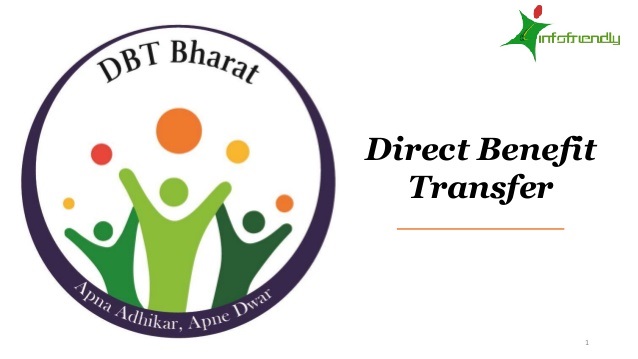The Benefits of Dialectical Behavior Therapy (DBT)
Dialectical Behavior Therapy (DBT) is a highly effective form of therapy that combines elements of cognitive-behavioral therapy with mindfulness techniques. It was initially developed to treat individuals with borderline personality disorder (BPD) but has since been found to be beneficial for a wide range of mental health conditions. In this article, we will explore the numerous benefits of DBT and how it can significantly improve the lives of those who undergo this therapy.
Improved Emotional Regulation
One of the key benefits of DBT is its focus on helping individuals develop better emotional regulation skills. People who struggle with intense emotions, such as those with BPD, often find it challenging to manage their feelings effectively. DBT equips individuals with practical techniques to identify, understand, and regulate their emotions. Through skills training and regular practice, individuals can learn to navigate their emotions more healthily and adaptively.
Enhanced Interpersonal Effectiveness
DBT places great emphasis on improving interpersonal effectiveness, which is particularly relevant for individuals with BPD who often struggle with unstable relationships. By teaching individuals effective communication skills, assertiveness, and boundary-setting techniques, DBT helps individuals build and maintain healthier relationships. This can lead to greater satisfaction in personal and professional interactions, as well as improved overall well-being.
Reduced Self-Destructive Behaviors
Another significant benefit of DBT is its effectiveness in reducing self-destructive behaviors. Individuals with BPD often engage in impulsive and harmful behaviors as a way to cope with emotional pain. DBT provides alternative coping strategies and skills to manage distress, reducing the reliance on self-destructive behaviors. By learning healthier ways to cope, individuals can break free from destructive patterns and improve their overall quality of life.
Increased Mindfulness
Mindfulness is a fundamental aspect of DBT and plays a crucial role in its effectiveness. Mindfulness involves being fully present in the current moment, without judgment. Through mindfulness exercises and practices, individuals learn to observe their thoughts, emotions, and sensations without becoming overwhelmed or reactive. This heightened awareness can lead to a greater sense of self-control, improved focus, and reduced stress levels.
Greater Distress Tolerance
DBT equips individuals with valuable distress tolerance skills, which are particularly beneficial for those who struggle with intense emotions and difficult situations. Distress tolerance skills help individuals tolerate distressing emotions without resorting to impulsive or harmful behaviors. By developing effective coping mechanisms, individuals can navigate challenging circumstances with resilience and maintain emotional stability.
Improved Self-Confidence
As individuals progress through DBT, they often experience an increase in self-confidence and self-esteem. Through the acquisition of new skills and the ability to effectively manage their emotions and behaviors, individuals gain a sense of mastery and empowerment. This newfound confidence can extend beyond therapy sessions and positively impact various areas of their lives, including work, relationships, and personal growth.

Dialectical Behavior Therapy (DBT) offers a multitude of benefits for individuals struggling with various mental health conditions. From improved emotional regulation and interpersonal effectiveness to reduced self-destructive behaviors and increased mindfulness, DBT equips individuals with valuable skills to enhance their overall well-being. By embracing the principles and techniques of DBT, individuals can experience significant positive changes in their lives, paving the way for a brighter and more fulfilling future.
Frequently Asked Questions about the Benefits of DBT
1. What is DBT?
DBT stands for Dialectical Behavior Therapy. It is a type of psychotherapy that helps individuals with emotional regulation and managing distress.
2. Who can benefit from DBT?
DBT is primarily designed for individuals who have difficulty regulating their emotions, such as those with borderline personality disorder, substance abuse issues, eating disorders, or self-destructive behaviors.
3. What are the main benefits of DBT?
The main benefits of DBT include improved emotional regulation, increased mindfulness, enhanced interpersonal skills, reduced self-destructive behaviors, and better-coping mechanisms.
4. How does DBT help with emotional regulation?
DBT teaches individuals specific skills to identify, understand, and manage their emotions effectively. It provides techniques to regulate intense emotions and avoid impulsive reactions.
5. Can DBT help with self-destructive behaviors?
Yes, DBT has been proven effective in reducing self-destructive behaviors such as self-harm, suicidal tendencies, and substance abuse. It provides alternative coping strategies and promotes healthier behaviors.
6. Does DBT involve individual or group therapy?
DBT typically involves a combination of individual therapy sessions and group skills training. Individual therapy allows for personalized treatment, while group sessions provide opportunities for practicing skills and receiving support.
7. How long does DBT treatment last?
The duration of DBT treatment varies depending on individual needs. It usually involves a commitment of at least one year, with weekly individual therapy sessions and regular group sessions.
8. Are the benefits of DBT long-lasting?
Research suggests that the benefits of DBT can be long-lasting. By acquiring and practicing the skills learned in therapy, individuals can continue to apply them in their daily lives even after the treatment ends.
9. Is DBT suitable for adolescents?
Yes, DBT can be adapted for adolescents who struggle with emotional regulation, self-destructive behaviors, or other related issues. It has shown promising results in helping adolescents cope with their emotions and improve their overall well-being.
10. Can DBT be used alongside other treatments?
Yes, DBT can be integrated with other treatments depending on the individual’s needs. It can complement medication management, individual counseling, or other therapeutic approaches to provide comprehensive care.




